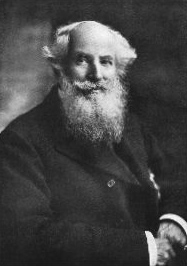Jen Bervin’s book “Nets” (Ugly Duckling Press, 2004) deserves to be written about more. It is a book of genius on so many levels. I know that the use of that word – the dreaded word “genius” always seems quite hyperbolic but in this case it fits in a very practical sense if we are to get at the heart of what she has done. I think we need to frame this review in the meanings that are teased out of this word in the broadest sense to get at what this review needs to do.
Each page of her book is a sonnet from Shakespeare with the text of the sonnet in light grey lettering a few selected words and/or phrases bolded to form a new poem. It is an astounding work of bravado. In her working note in the back she says that she “stripped Shakespeare’s sonnets bare to the ‘nets’ to make the space of the poems open, porous, possible – a divergent else-where.” It is a completely re-imagined vision of a text and a subversion of “The Canon” or the Textus Receptus. She goes on to say that “when we write poems, the history of poetry is with us, pre-inscribed in the white of the pages; when we read or write poems, we do it with or against this palimpsest.”
From Merriam-Webster’s Collegiate Dictionary:
: a very smart or talented person : a person who has a level of talent or intelligence that is very rare or remarkable
: a person who is very good at doing something
: great natural ability : remarkable talent or intelligence
It is important to understand what she is doing with this book. Bervin is a poet and what she is going to do is take the work of another poet and erase it. She is going to take some of the most well-known and beloved poetry in the west and deface it. She is going to scrape the ink away leaving a selection of words of her choice. Or maybe a selection of words that can only be chosen by the work. That is what we have to decide. It takes a talented, remarkable and rare person to do what she has done – she has taken the sacred words of Shakespeare, the great Mighty Whitey, and had the balls to erase, subvert, and negate.
:a plural genii an attendant spirit of a person or place
:b plural usually genii a person who influences another for good or bad
It is as if she understands how he has haunted poetry for the last 500 years. These words are untouchable. They are handed to us on brass tablets. And not everyone really gets to discuss them: one has to have gone to the right schools to have anything relevant to say about the received text, yet Bevin’s work calls into question the entire nature of the acceptable text. The poetry, the haiku, that she excavates from Shakespeare’s text are little works of genius in themselves that must be read.
Sonnet 55 becomes:
Not marble, nor the gilded monuments
Of princes, shall outlive this powerful rhyme;
But you shall shine more bright in these contents
Than unswept stone besmear’d with sluttish time.
When wasteful war shall statues overturn,
And broils root out the work of masonry,
Nor Mars his sword nor war’s quick fire shall burn
The living record of your memory.
‘Gainst death and all-oblivious enmity
Shall you pace forth; your praise shall still find room
Even in the eyes of all posterity
That wear this world out to the ending doom.
So, till the judgment that yourself arise,
You live in this, and dwell in lovers’ eyes.
She curates the brilliant lexicography of Shakespeare with her own peculiar inclinations, imbued with her own character and weltanshauung:
: a strong leaning or inclination penchant
: a peculiar, distinctive, or identifying character or spirit the associations and traditions of a place
: a personification or embodiment especially of a quality or condition
The genius of this work is that at a different time, a different age, a different view, different poems would be elicited from the text. But I think that is one of her points in doing this – the palimpsest – the scraping away of a text to create a fresh meaning, to layer text upon text over time creating a new work of art that casts the old in a new light and suggests new directions. Genius as a spirit of time and place, as well as the gifts of the writer, are quite apt here.





